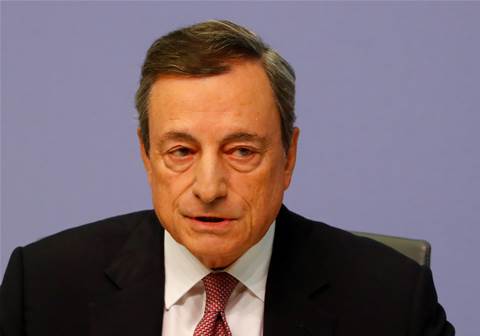The European Central bank has no plan to issue a digital currency because the underlying technology is still fragile and the use of physical cash still high in the euro zone, the ECB president said on Friday.
The sudden proliferation of cryptocurrencies such as Bitcoin, essentially a privately created online token, has sparked a global debate over whether central banks should also launch their own digital money.
This would give holders a direct claim on the central bank, bypassing the banking system and potentially revolutionising the way monetary policy is carried out.
Sweden’s Riksbank is exploring whether to issue an electronic version of its currency, called e-krona, to respond to the dwindling use of banknotes and a rise in electronic payments in that country.
But ECB President Mario Draghi said the time was not ripe for such a change in the euro zone.
“The ECB and the Eurosystem currently have no plans to issue a central bank digital currency,” he said in a letter to a member of the European Parliament.
He added that technologies such as distributed ledgers “require substantial further development” and that he saw no “concrete need” to issue a digital euro.
Cash accounted for 79 percent of all payments at point of sale in the euro zone in 2016 and for 54 percent of the total value of those transactions, according to ECB research.
Separate ECB data published on Friday showed non-cash payments were growing, however, with a 7.9 percent annual increase in 2017 led by cards.




